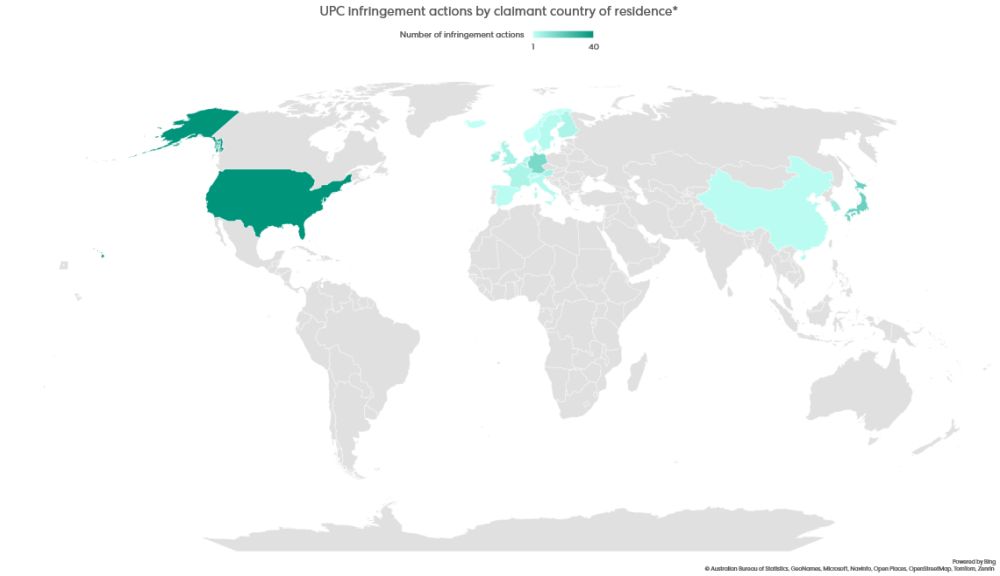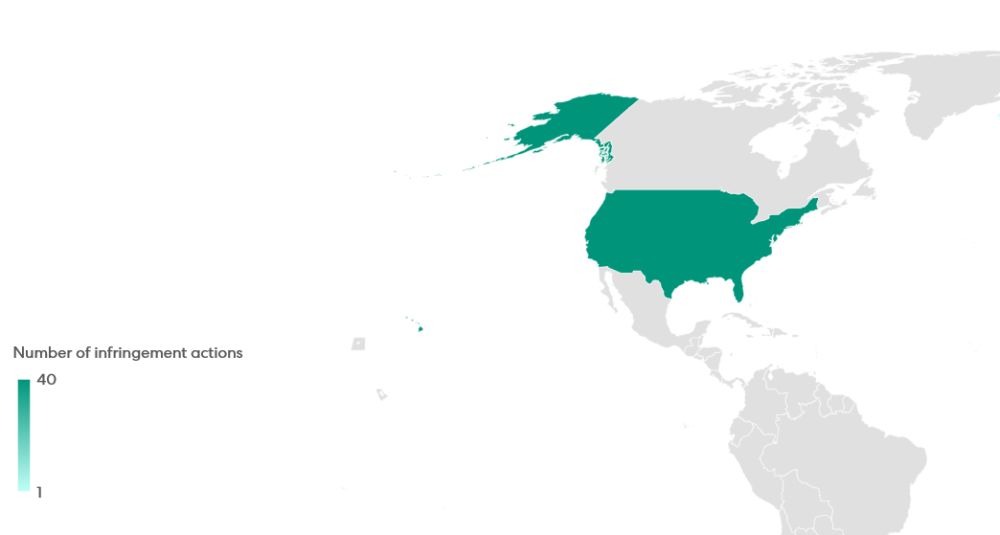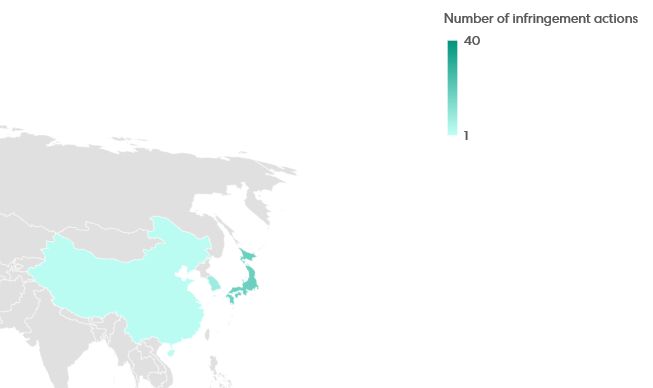Infringement actions from around the world
The UPC has got off to a flying start, attracting infringement actions from patent proprietors around the world, for patents in a wide variety of technological fields. These claimants are no doubt drawn by the prospect of a swift procedure and a final decision that is enforceable in 17 EU member states.
So far, claimants at the UPC have come from 20 different countries. As you can see in the heat map below, the majority (almost 28%) of infringement actions to date1 have been filed by US-based claimants. Japan is in second place with 12.6% of the infringement actions, followed by Germany (10.5%), South Korea (5.6%) and the Republic of Ireland (4.9%).
*Country of residence of claimant first listed on UPC CMS
US organisations leading the charge
The prevalence of US-based claimants at the UPC is perhaps unsurprising. US-based applicants also dominate the most recent European patent filing and grant statistics, with 24.2% of all European patent applications filed2 and 23.9% of all European patents granted in 20233. US companies are generally thought to be more comfortable with the prospect of patent litigation than their counterparts elsewhere in the world, so it is perhaps not surprising to see 17 different US-based companies among the early adopters of the UPC.
These US-based claimants are active in a variety of technologies, from code readers to prosthetic heart valves, via mobile telecommunications and glucose monitoring systems.
Japan – a major user of the European patent system
Japan's position as the second most common country of origin of UPC claimants also broadly reflects that country's standing as a major user of the European patent system. In 2023, Japanese applicants accounted for 10.8% of all European patent applications and 12.8% of all granted European patents.
Two-thirds (12 out of 18) of the infringement actions originating from Japan were filed by Panasonic Holdings Corporation, seeking to enforce patents declared essential to the WCDMA and LTE telecommunications standards against implementer companies including Oppo and Xiaomi.
Germany, South Korea and Republic of Ireland
Germany has the greatest diversity of UPC claimants; its 15 UPC infringement actions come from 14 different claimants, and are spread across a range of different technologies.
In contrast, the eight infringement actions originating from South Korea were filed by just three different claimants. These cases relate to juice extraction and light emitting diode technologies.
Standards-essential patents help to explain the Republic of Ireland's fifth-place ranking for UPC claimants. Five out of the seven infringement actions originating from Irish claimants were filed by Dolby International AB, an Irish registered company, for alleged infringements of two of its patents that are deemed essential to the Opus audio codec against implementers of the technology.
A waiting game?
Perhaps most surprisingly, despite China's strong position among users of the European patent system – it received 8.4% of all granted European patents in 2023, and filed 10.4% of European patent applications – only two of the infringement actions filed at the UPC so far are from Chinese claimants. Chinese holders of European patents will undoubtedly be monitoring the outcomes of the first wave of UPC actions with interest to inform their own litigation strategies.
Footnotes
1. Infringement actions visible on the UPC Case Management System at 13 July 2024
2. https://www.epo.org/en/about-us/statistics/patent-index-2023/statistics-and-indicators/european-patent-applications/origin
3. https://www.epo.org/en/about-us/statistics/patent-index-2023/statistics-and-indicators/granted-patents/origin
The content of this article is intended to provide a general guide to the subject matter. Specialist advice should be sought about your specific circumstances.





